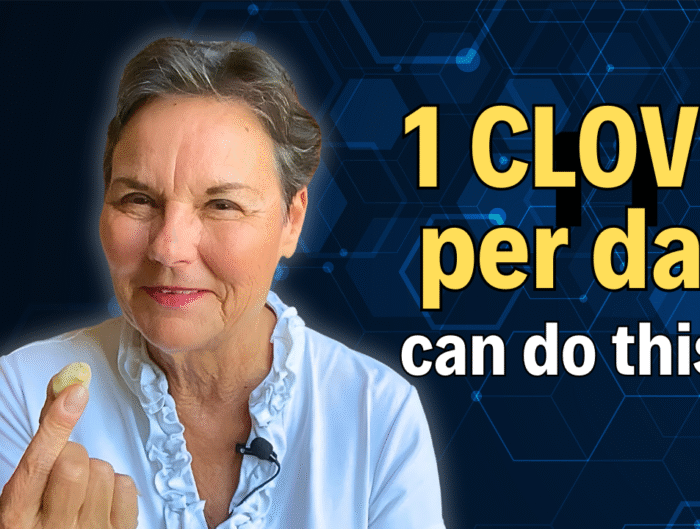Magnesium is an essential mineral that is involved in 600 biochemical functions in the body. These include regulating heartbeat rhythms and nerve transmission, strengthening bones, neutralizing stomach acid, moving stools through the intestine, and proper function of tissues, muscles, and nerve transmission. It’s also important for energy production and enzyme function. My previous video on magnesium and its benefits will be referenced below.
Today, we want to look at the nine types of magnesium that can benefit your health:
- Magnesium Glycinate – This is a gut-friendly form of magnesium made up of magnesium and the amino acid glycine that helps with digestive issues. It helps you relax and is good for nerve pain. It is also one of the most bioavailable and absorbable forms of magnesium. As a result, people use it for sleep, muscle relaxation, and anxiety. Many doctors recommend this form of magnesium for those who are deficient in magnesium.
- Magnesium Citrate – This is a form of magnesium combined with citric acid and can have a laxative effect when given in high doses. It can help with anxiety and sleep, but many people use it for constipation. It’s also relaxing, known to reduce muscle pain, and good for the kidneys. It’s also easily absorbed.
- Magnesium L-Threonate – This is the newest form of magnesium and is great for memory, brain fog, focus, depression, and neurodegenerative disorders. It’s the best magnesium supplement for cognitive issues because it crosses the blood-brain barrier. Some medical professionals believe it is best taken with magnesium glycinate. According to a 2014 study, it offers both cognitive-boosting and neuroprotective benefits. Another study found that this form of magnesium helps support BDNF or Brain-Derived Neurotrophic Factor expression and synaptic signaling, which are both important as we age. It may also improve oxidative stress. For all these reasons and the fact that it can cross the blood-brain barrier, many doctors recommend this form of magnesium for cognitive issues.
- Magnesium Oxide – This form of magnesium is an inorganic salt of magnesium formed with ions of magnesium and oxygen. It’s known to help with constipation. It’s the least absorbed in the body so it stays in the colon and gets pooped out. It’s also used as a remedy for acid reflux and heartburn, and to reduce the frequency and intensity of migraines by impacting nerve cell functioning and inflammation. But it can reduce the absorption of bisphosphonates used to treat osteoporosis. Therefore, it’s recommended to separate the taking of these medications by at least two hours.
- Magnesium Malate – This form of magnesium combines magnesium with malic acid. It’s found naturally in fruits such as apples. It’s a great option for boosting energy levels and improving depression and chronic fatigue syndrome. It also helps with metabolism and reduces muscle pain.
- Magnesium Chloride – This is a detoxifying form of magnesium, which is an ionically bonded salt containing 1 atom of magnesium to 2 atoms of chloride. It’s easily absorbed by the body and is good for bone health, blood pressure, migraines, and blood sugar. Keep in mind that 60 percent of magnesium is stored in the bones.
- Magnesium Taurate – This is a form of magnesium that combines magnesium with the amino acid taurine. Its benefits include lowering blood pressure, improving heart function, promoting detoxification, relieving constipation, and reducing heart arrhythmias. It also helps maintain strong bones, improves insulin sensitivity, and improves sleep quality and relaxation. It’s not unusual for an informed doctor to recommend this supplement to their patients with heart issues.
- Magnesium Orotate – This is a form of magnesium that combines magnesium with orotic acid. Although it is poorly soluble in water, it remains a popular choice due to its many benefits such as reducing anxiety, regulating neurotransmitters, regulating sleep, relieving migraines, and improving cardiovascular health. Research suggests that magnesium orotate helps with Mitral Valve Prolapse, preventing arrhythmias, and regulating blood pressure and nerve transmission. Proper dosage is important because it may interact with certain medications including diuretics and antibiotics. Many cardiologists recommend both magnesium orotate and magnesium taurine.
- Magnesium Sulfate – This form of magnesium is a combination of magnesium, sulfur, and oxygen sold in drug stores and other places as Epsom Salt. It’s used as a quick relief for constipation, but mainly by people as a soaking agent to relieve muscle soreness, promote relaxation and sleep, and increase magnesium levels. It’s not recommended to use as a laxative for more than a week. It’s sometimes used as part of a colonoscopy preparation, but magnesium citrate is more commonly used.
As you can see from my previous video on the benefits of magnesium, it is one of the most important minerals in our body. It’s involved in many biological processes that are important for metabolic health and function. In addition, there are 3,751 magnesium binding sites on human proteins. Magnesium also improves mitochondrial function, which I’ve already done three videos on and which will be referenced in the show notes below. Mitochondria are the batteries of your cells. It’s your mitochondria that produce the energy your body needs to function properly.
It’s estimated that 60 to 80 percent of Americans are deficient in magnesium. Don’t be one of these people. Next time you go to your doctor, ask if magnesium supplementation might be helpful for you. Your doctor can best decide the dosage and which type will be best for your situation. Your doctor is the only one besides you who knows what medications you are on and other issues you have that might be helped or impacted by this.
It’s best to take about 300–400 mg daily at most, unless your doctor tells you differently. For children, magnesium is safe when taken in doses of between 65 to 100 mg/day depending on age, or up to 350 mg/day for children older than 8 years. Too much magnesium from food doesn’t pose a risk because the excess magnesium is flushed out in the urine. It’s the supplementation that could cause toxic levels if taken in high doses.
High doses of magnesium 800 mg – 1800 mg for several months may be used by your doctor under strict supervision for irregular heartbeats and indigestion. Don’t try high doses without medical supervision.
Although magnesium toxicity is rare, we don’t want to get too much. And we already know that too much magnesium can cause diarrhea, nausea, and abdominal cramping. Most doctors instruct you to take magnesium to bowel tolerance, meaning to back up on the dosage if you begin to have loose stools. Avoid magnesium stearate because it’s a common additive that is not good for your health.
I now use Bioptimizer’s Magnesium Breakthrough. It contains seven of these types of magnesium.
Use code “unleash” for a discount
**When you purchase from this link, this ministry will receive a small portion to help cover expenses.
View this message on YouTube:
Nine Types of Magnesium that Can Benefit Your Health
Related messages on YouTube:
Seven Health Benefits of Magnesium that Can Change Your Life
Using the Health of Your Mitochondria to Prevent and Survive Cancer
Ten Causes of Mitochondrial Dysfunction
Ten Research-backed Ways to Boost Your Mitochondria
For Your Health,
Ginny
 Ginny Dent Brant is a speaker and writer who grew up in the halls of power in Washington, DC. She has battled cancer, ministered around the world, and served on the front lines of American culture as a counselor, educator, wellness advocate, and adjunct professor. Brant’s award-winning book, Finding True Freedom: From the White House to the World, was endorsed by Chuck Colson and featured in many TV and media interviews. Unleash Your God-Given Healing: Eight Steps to Prevent and Survive Cancer was released in May 2020 after her journey with cancer and was recently awarded the First Place Golden Scrolls Award for Memoirs, a finalist in Serious Writers Book of the Decade, and Second Place in both Selah Awards for Memoirs and Director’s Choice Award for Nonfiction at the Blue Ridge Mountain Christian Writer’s Conference. It recently received the Christian Authors Network’s (CAN) Gold Award for Excellence in Marketing for reaching 62.5 million people with a message of cancer prevention and survival. It was written with commentary from an oncologist and was featured on CBN’s Healthy Living Show, Atlanta Live, and CTN’s Homekeepers along with over 75 media outlets. Learn more and cancer and wellness prevention blog and book information at www.ginnybrant.com. Ginny is on YouTube
Ginny Dent Brant is a speaker and writer who grew up in the halls of power in Washington, DC. She has battled cancer, ministered around the world, and served on the front lines of American culture as a counselor, educator, wellness advocate, and adjunct professor. Brant’s award-winning book, Finding True Freedom: From the White House to the World, was endorsed by Chuck Colson and featured in many TV and media interviews. Unleash Your God-Given Healing: Eight Steps to Prevent and Survive Cancer was released in May 2020 after her journey with cancer and was recently awarded the First Place Golden Scrolls Award for Memoirs, a finalist in Serious Writers Book of the Decade, and Second Place in both Selah Awards for Memoirs and Director’s Choice Award for Nonfiction at the Blue Ridge Mountain Christian Writer’s Conference. It recently received the Christian Authors Network’s (CAN) Gold Award for Excellence in Marketing for reaching 62.5 million people with a message of cancer prevention and survival. It was written with commentary from an oncologist and was featured on CBN’s Healthy Living Show, Atlanta Live, and CTN’s Homekeepers along with over 75 media outlets. Learn more and cancer and wellness prevention blog and book information at www.ginnybrant.com. Ginny is on YouTube
Invite Ginny to speak at your church or event
Link to buy my book at Unleash Your God-given Healing
Invite me to speak at your church or event
Click to sign up to take Conquering Cancer Course
Ginny is a cancer coach. Make an appointment to meet with her:
***** This content is strictly the opinion of Ginny Brant and is for informational and educational purposes only. It is not intended to provide medical advice or to take the place of medical advice or treatment from a personal physician. All viewers of this content are advised to consult their doctors or qualified health professionals regarding specific health questions. Neither Ginny Brant nor the publisher of this content takes responsibility for possible health consequences of any person or persons reading or following the information in this educational content. All viewers of this content, especially those taking prescription or over-the-counter medications, should consult their physicians before beginning any nutrition, supplement, or lifestyle program. *****




